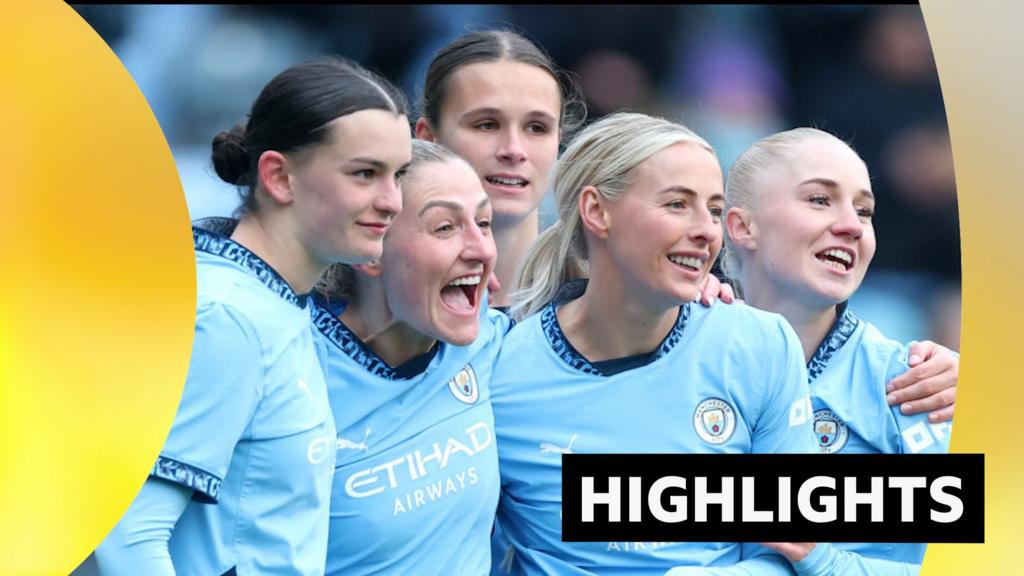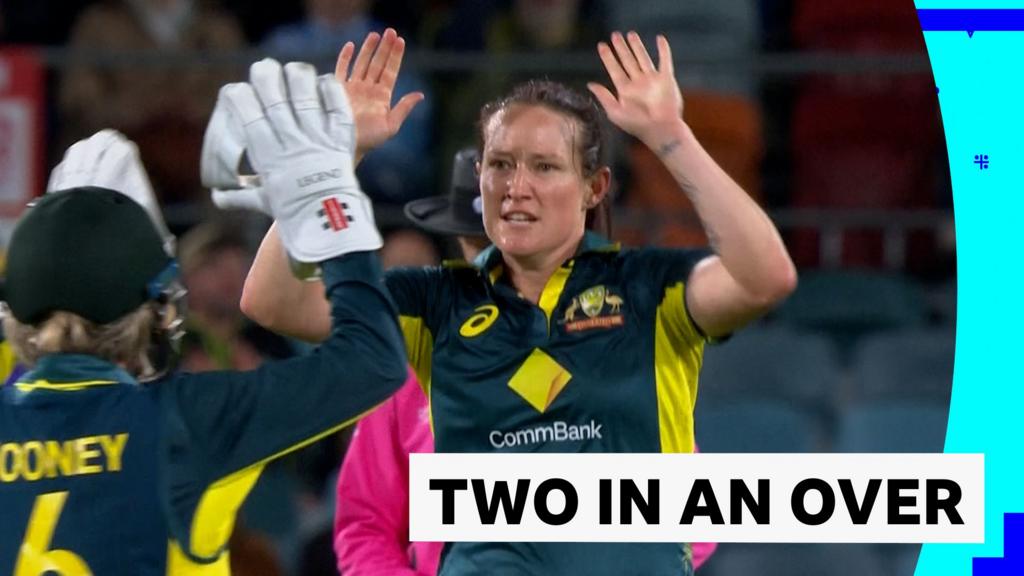ARTICLE AD BOX
He was sat next to Craig Bellamy on the day he was unveiled as Wales’ new men’s head coach and alongside Rhian Wilkinson when she first addressed the media as Wales women’s boss.
Followers of Welsh football will probably have seen Dave Adams even if they do not know who he is.
They will also have seen the results of his work, as Adams is arguably doing as much as anyone to shape the future of football in Wales.
As the Football Association of Wales’ chief football officer, Adams has a broad remit which essentially means he is responsible for the men’s and women’s game at all levels in the country.
He is the man who leads the appointment process for coaches of Wales’ senior men’s and women’s teams, drawing up shortlists and interviewing candidates before recommending them to the FAW’s executives and boards.
So it was for Adams, for example, that Bellamy had prepared a tactical presentation on the Wales squad during his interview at Burnley’s training ground this summer.
“He had a big screen and a tactics board next to it, so he's dancing between his slide deck, talking through keynotes and visuals of the team,” Adams tells BBC Sport Wales.
“Then he’s jumping on to the tactics board and talking through how the team looks, so it was a really interesting process.
“And although you want to ask structured questions, you want to ask questions which just give them an opportunity to sell themselves. You don't want it to be too formal in that sense.
“Rhian’s super strength is probably her leadership. I think her strength is making decisions, not being someone that's going to overthink things too much.
“You’ve got to make decisions, you’ve got to make them now, so what came across with Rhian was that she'd be strong and she'd be able to hit the ground running with this team.”
Choosing the people who lead Wales’ senior international teams is a weighty responsibility; Adams and those he appoints are ultimately judged on whether or not they qualify for major tournaments.
He also has to ensure that everything is in place to nurture the next generation of players, from identifying young talents, to providing them with a route to the highest echelons of the game.
It is a job with a vast brief, and a role to which Adams has taken a long and unconventional route.
Born in Haverfordwest, Adams dreamt of playing professionally but, while studying sports science at what is now known as Cardiff Metropolitan University, realised his best chance of a career in football was through coaching.
After graduating, Adams combined his first job as a football development officer in Merthyr Tydfil with studying for his Uefa coaching badges.
Then while he was a lecturer as the University of South Wales, Adams worked alongside former Wales assistant boss Osian Roberts in developing the FAW’s highly-regarded coaching courses – which count Mikel Arteta and Thierry Henry among their graduates.
With his foot in the FAW door, he began coaching some of Wales’ age-grade and women’s teams around the same time Gary Speed was implementing reform as manager of the men’s senior side.
A move to then-Premier League Swansea City, as head of coaching, followed in 2014, with Adams temporarily taking charge of the first team when Garry Monk was dismissed.
Adams later followed Monk to Middlesbrough in 2017 but, when Roberts left the FAW in 2019, he rejoined the association as technical director.
“I just felt the stars aligned, that this could be the perfect role for me in terms of what I'd done before,” Adams says of the position which has developed to become chief football officer.
“I sit in the middle of a wheel of people – national team head coaches – and I try and keep the wheel rolling and moving in the right direction.
“I'm kind of the conduit to make sure that we keep moving our high-performance strategy forwards and we have clear goals under each of our pillars.”
The pillars Adams mentions are the four key tenets of his job and, as the 44-year-old explains, he manages these elements by working with various heads of department at the FAW.
1. Talent identification and retention
Adams describes this as “a big part of my role”, working alongside Gus Williams, the FAW’s national talent identification manager.
“It’s identifying the most talented players that are Welsh eligible, and then retaining them,” Adams says.
“This is becoming more and more challenging because more and more players are dual-eligible.”
Wales’ men’s and women’s senior teams illustrate the value of this particular facet, with several dual-eligible players in both squads.
On the men’s side, the likes of Brennan Johnson and Ethan Ampadu could have represented other countries, while women’s players such as Hayley Ladd and Ceri Holland committed to Wales despite being eligible to play for rival nations.
2. Effective pathways for progression
Richard Williams, the FAW’s head of player development, plays a leading role with this aim to “ensure a clear and consistent pathway for our international youth players through to the Welsh national team”.
That means players are identified early – the FAW girls’ academy, for example, starts at 12 years old – and given a clear route through age-grade sides right up to senior teams.
“You create a culture and an environment where the players feel comfortable, they enjoy it,” says Adams.
“If you do those things really well, you've got the best possible chance of retaining talent in your system. And we've done that exceptionally well with players like Jordan James, Ethan Ampadu, Dan James.”
3. Support services
These are areas such as strength and conditioning, medical services and sports analysis.
Leading these FAW departments are head of performance Ryland Morgans, medical service manager Sean Connelly and head of performance analysis Esther Wills.
Adams says: “I believe if you provide the right support services to the individual, that also ensures that you create a high-performance environment.”
4. Coaching system
“Our coach education system is world-renowned,” Adams says.
You can see why when you consider the likes of Arteta, Henry, Roberto Martinez and Patrick Vieira have studied for their coaching badges with the FAW.
“But as much as we want to educate people formally, we also recognise that informally you have to also develop internally how your own staff operate,” Adams adds.
“So things like our Welsh Way, our national curriculum, making sure there's alignment across all the different teams, making sure the coaches are set up for success.”
The idea holding all these concepts together is what the FAW calls the Welsh Way.
That encompasses everything from senior international teams to grassroots; principles for a style of play, but also a vision for football in Wales, how to help drive the growth of the game and foster a national pride in representing your country.
And it was with all this in mind that Adams chose Bellamy and Wilkinson.
“If you're in club football, style of play is easy because you recruit players for the style of play and therefore all your data and analytics are looking at players in the market that suit that specific style,” says Adams.
“It's a little bit more complex for Wales in the sense we're not recruiting players who play a certain DNA. They all come from various clubs across various environments.
“So I think you need a coach who's tactically flexible. You want to understand from either speaking to them or using data that they have that capacity to be pragmatic or agile. If they are very set on an exact way of playing, maybe that isn't suitable to international football.
“You also have to recognise that in Wales we've been successful with the model of people who have a connection to Wales. On both sides, we’ve got Craig Bellamy who couldn't be any more passionately Welsh and Rhian Wilkinson maybe isn't from Wales, but she's got connections to Wales.
“So I think it's important you have a really clear idea about what you're looking for.”
That clear vision has got Adams to this position and helped Wales’ men qualify for two European Championships and a World Cup in the past eight years.
Now the aim is to bring further – and in the women’s case, historic – success to Wales.
“My role is to make sure all of those things function effectively so we're set up for success in the long term, and we can work towards our goal of consistently qualifying to major tournaments,” Adams says.
“That is what I'm trying to achieve in my role as chief football officer.”

 4 months ago
16
4 months ago
16








 English (US) ·
English (US) ·